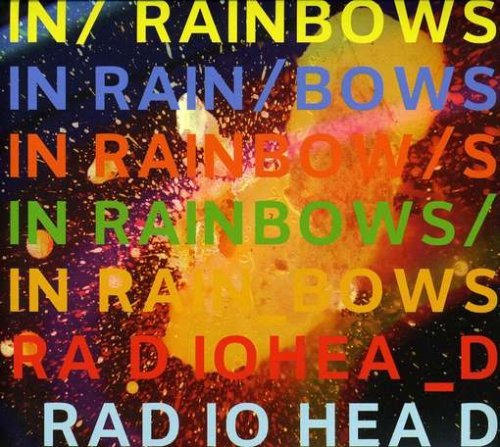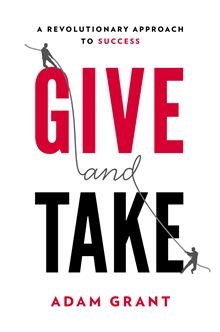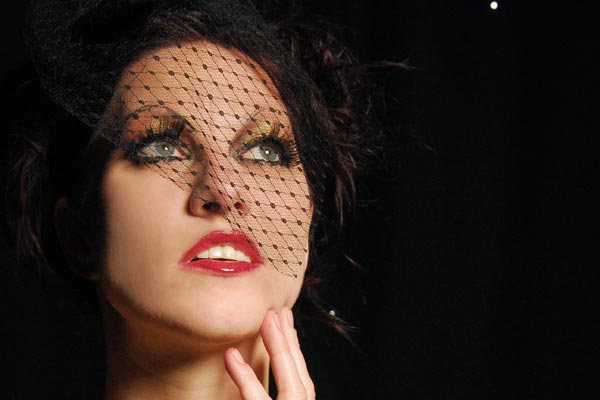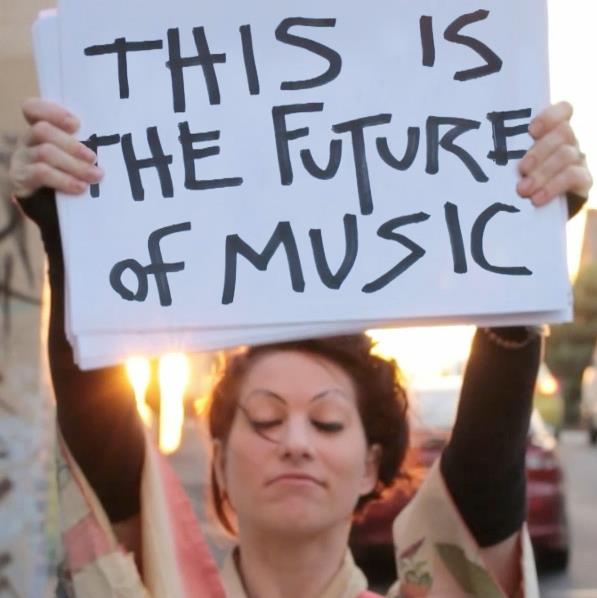Focusing on what you stand to gain—like getting the next buck or increasing your influence—is the wrong path when it comes to sustaining your best work. A better way may be forming relationships through the generosity of your giving and the vulnerability of your asking.
Customers and clients can always smell your hunger (or desperation) when all you’re after is their business. They’d much rather share in an exchange with you that’s mutually satisfying—collaborating to solve a problem, finding just the right product to meet the need, while also learning who you are, why you do what you do, what makes you happy or keeps you up at night, and how they might help you in return.
It’s an exchange based on giving not wanting, asking not telling, a dynamic that presents opportunities to meet one another’s needs while you both stand on a relatively level playing field.
Pie-in-the-sky? I don’t think so.
 In 2007, the band Radiohead deepened the relationship it already enjoyed with its fans by offering its In Rainbows disk for whatever you wanted to pay for it, or for nothing at all.
In 2007, the band Radiohead deepened the relationship it already enjoyed with its fans by offering its In Rainbows disk for whatever you wanted to pay for it, or for nothing at all.
The point wasn’t making money on the disk or even breaking even, it was about things like the band’s gratitude for loyal listeners, their confidence in their music, trust in their fans, and drawing attention to political causes that were important to them. In the randomness of opportunities they opened here, maybe you downloaded the album for free, but were drawn to support a cause the band believed was important. Giving and asking multiplied as well as strengthened Radiohead’s ties to its audience. (Frontman Thom Yorke just happens to be in my hometown this week as part of the Atoms for Peace tour.)
 The bounty that comes from helping without expectation of return is the subject of Adam Grant’s book, Give & Take, which came out earlier this year. The following is from a story about the Wharton professor in the New York Times last spring:
The bounty that comes from helping without expectation of return is the subject of Adam Grant’s book, Give & Take, which came out earlier this year. The following is from a story about the Wharton professor in the New York Times last spring:
’I never get much done when I frame the 300 e-mails [that are asking for my help every day] as ‘answering e-mails,’ Grant told me. ‘I have to look at it as, ‘How is this task going to benefit the recipient?’ Where other people see hassle, he sees bargains, a little work for a lot of gain, including his own.
For Grant, giving as well as asking for help is the motivator that spurs greater productivity on both sides of every exchange.
Another case for work-based reciprocity is currently being made by Amanda Palmer.

Palmer is a singer and instrumentalist who once made music with a duo called the Dresden Dolls (in her words, “a cross between punk & cabaret”) and now fronts an ensemble called the Grand Theft Orchestra. I love her music, her ferocity when she’s delivering it, and her thoughtfulness about the communication channels she’s playing with, particularly when it comes to giving and asking.
By making powerful expressions of generosity and vulnerability, she has ripped through the membrane between herself and her fans, and they in turn have reciprocated by holding her up when she has asked them to.
 One way her fans have said, “No, we thank you,” was by crowdfunding her current album. Crowdfunding has been a regular topic on this page, most recently a few months ago. Social media involves strangers as well as friends in your story, while crowdfunding gives them a stake in your quest.
One way her fans have said, “No, we thank you,” was by crowdfunding her current album. Crowdfunding has been a regular topic on this page, most recently a few months ago. Social media involves strangers as well as friends in your story, while crowdfunding gives them a stake in your quest.
Palmer had been abandoned by her record label, was giving her music away, and couldn’t afford to make another record. As she explained in a video interview (which Palmer starts with a gorgeous song that’s neither punk nor cabaret), she asked for $100,000 on Kickstarter and received $1.2M, giving nothing to her contributors in return but the joy of helping and the promise of more free music. A few months later, in a TED talk called “The Art of Asking,” she elaborated on why she thought she had received more contributions than anyone in the music business had ever received before from a crowdfunding platform.
It’s a gem.
Palmer analogized the vulnerability of asking for something you really need to “falling into an audience and trusting” that you’ll be caught—a type of fan connection that was once a staple of every punk rock concert. Trusting in the kindness of strangers, what Palmer calls “random closeness,” when she asks for a bed to sleep in or the use of a piano in a strange town, led her to put her entire career into the hands of her audience.
Once again, it’s not a one-for-one type of exchange. Palmer shares music and asks for whatever she needs to continue making it. “When we really see each other, we want to help each other,” she says.
This may seem like a young person’s game, but Palmer is 37.
Over the past couple of years, her giving and asking has brought her a million followers on Twitter, the ability to produce her own music, a TED talk, a Brainpickings’ interview, and more than 15 minutes of fame for her songs and ideas. As an artist, she knows that all you need is “a few people loving you up close,” even though she may never know their names or recognize their faces. Will these digital networks of trust and reciprocity be enough to support her and her work at 57, or 77?
Do the relationships that Palmer (and others like her) are building give us the outlines of a new paradigm for sustaining yourself and your loved ones while working at what you love?
Is this a way for us to return to greater productivity where we live and work?
Can enough of us ever trust again this much?
What a truly invigorating, and hopeful, post. Last week I had the privilege of hearing Paul Simon on campus, talking, reflecting, pondering, and, yes, playing and he was quite candid about how worn-down the music industry has become. Nevertheless, this master/magical songwriter’s word and music are hard-wired into my very being, over many, many years, and more yet ahead. But this post made me not only want to seek out and listen to Amanda Palmer, but I want to embody her bravery and trust. So much gets in the way of truly being able to “see each other,” never mind offering the sincere expression of agape love by simply being present, offering help, without condition. Lots to think about – but even more to spur me on towards action! Thanks, David, for a particularly evocative post.
Thanks for your heartfelt response.
Authors, musicians, film makers and journalists are all struggling with the challenge of “making a living” from their work now that their books, songs, movies and commentary are all available in digital form, and essentially free.
Tying original work to advertising or building higher firewalls around it have been the typical responses. But changes in technology also present unprecedented opportunities for building a loyal community around your work—a community you can not only give your songs and books to, but can also ask for the help you need so that you can continue to do what you do best.
Amanda Palmer and others like her are part of a vanguard responding to changing realities throughout our economy. And Marcy, you’re so right. They’re taking a leap of faith. Can enough of us trust enough in the quality of our work and the communities we have built around it so that they become mutually sustaining?
I don’t know whether I would be “brave” enough to trust this much. But it really gets the juices flowing to grapple with the question.